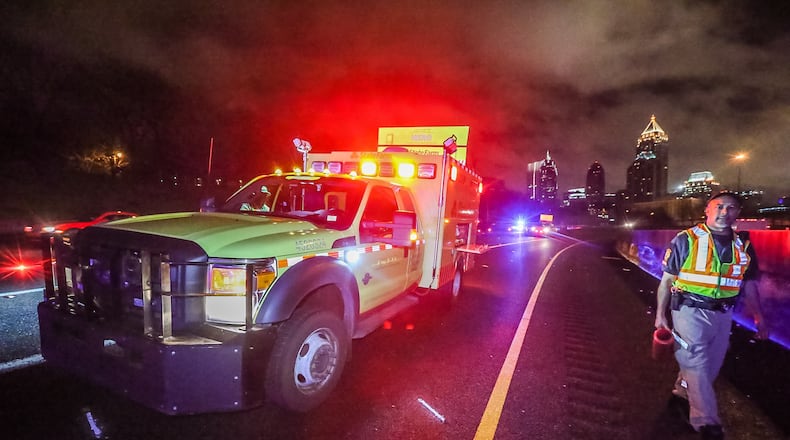Last week, GDOT commissioner Russell McMurry spoke with The Atlanta Journal-Constitution about the progress of major metro Atlanta interstate projects. Some of them will be completed many years from now. But there’s one Georgia Department of Transportation program that had to take a step backward in order to move forward.
Last July, GDOT’s Highway Emergency Response Operators (HERO) program scaled back from 24/7 service and decreased its metro Atlanta coverage footprint by 35%. At that time, McMurry said the agency made these changes to account for staff shortages and to try to regroup. The state hoped the cutbacks would be temporary. And McMurry said that GDOT hopes to restore the HERO program to its original coverage by the end of 2024.
“We tried to backfill with the CHAMP program to help pick up some of those less covered areas on mileage. And then [HERO units still] obviously try to respond in the off or overnight hours as necessary,” McMurry said in an August interview.
CHAMPs are white-colored HERO trucks that serve outside of metro Atlanta.
McMurry said HERO staffing had been down a year ago to a fraction of current levels. But the hiring process is arduous.
“We’ve revamped our training to try to make it a little more intense and actually get HEROs right along and sort of being present along the roadways, as they’re training,” McMurry explained. “Instead of training somebody, getting them out in a very dangerous environment and they decide ‘This is not for me’ and we lose.”
The training has been made safer. “There has been a lot of effort in the training so that we have HERO operators that take care of their own personal safety, first and foremost,” McMurry said. “And then they can provide that safety to the motorists and first responders that are out there working the crashes.”
Taking HEROs and first responders for granted is easy. But staffing issues in those fields can lengthen the clearance time of wrecks, which adds to traffic delays. Slower response times forces those in an incident to wait longer and putting them in more danger.
As HERO operations beef up again and as road work continues to expand around town, we should be reminded of Georgia’s Move Over Law. Drivers must either move out of the lane adjacent to first responders at an incident or slow down below the speed limit.
Distracted driving does even more to endanger HEROs, police officers, firefighters, EMS personnel, wrecker drivers, construction workers, and those involved in incidents. People illegally holding their phones and driving and then either swerving into an emergency lane or being unprepared when an incident is ahead of them have caused countless numbers of wrecks, injuries and deaths. Many close calls are not even documented. And these kinds of things make those in those professions seriously reconsider their career choices.
HERO operators do things like changing a tire, with their back to traffic, at 3 a.m., and in the rain. That takes nerve. The brave people who choose to do this should be lauded. We, as drivers, should not be chasing them off. And the state should be rewarding these heroes. Literal heroes.
Georgia’s HERO program has taken a big stab at the scaly, fiery dragon of Atlanta traffic. GDOT did a good job in keeping a level of service, whilst trying to step back and build it back up. This program is so vitally important to safety and traffic flow — HERO’s pending return to full service is quite welcome.
Doug Turnbull has covered Atlanta traffic for over 20 years. Contact him at fireballturnbull@gmail.com.
About the Author
Keep Reading
The Latest
Featured


